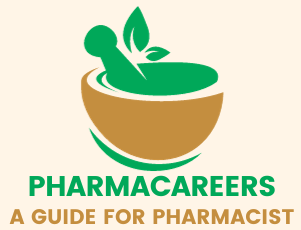Pharmacy Practice MCQ, in this article we will solve, Practice MCQ under subject Microbiology. Read following article for your reference.
Preservation Of Pharmaceutical Products Using Antimicrobial Agents » PHARMACAREERS
- What is the primary purpose of using antimicrobial agents in pharmaceutical products?
- a) To enhance the flavor
- b) To prevent microbial contamination and spoilage
- c) To increase production speed
- d) To improve color
- Which of the following is a common antimicrobial agent used in pharmaceuticals?
- a) Benzalkonium chloride
- b) Sodium chloride
- c) Acetic acid
- d) Citric acid
- What is the role of preservatives in pharmaceutical formulations?
- a) To enhance product stability by inhibiting microbial growth
- b) To improve the taste
- c) To change the color
- d) To increase viscosity
- Which type of antimicrobial agent works by disrupting the cell membrane of microorganisms?
- a) Phenolics
- b) Alcohols
- c) Quaternary ammonium compounds
- d) Heavy metals
- What is the mechanism of action of alcohol-based antimicrobial agents?
- a) Denaturation of proteins
- b) Oxidation of cellular components
- c) Inhibition of DNA synthesis
- d) Disruption of cell membrane
- Which antimicrobial agent is commonly used in ophthalmic solutions?
- a) Chlorhexidine
- b) Benzalkonium chloride
- c) Methylparaben
- d) Formaldehyde
- What is the main advantage of using parabens as preservatives in pharmaceutical products?
- a) Broad-spectrum antimicrobial activity
- b) Pleasant odor
- c) High cost
- d) Ease of application
- Which preservative is known for its effectiveness against fungi and mold?
- a) Benzalkonium chloride
- b) Propylparaben
- c) Ethyl alcohol
- d) Hydrogen peroxide
- What is the primary use of sorbic acid in pharmaceutical products?
- a) To act as a surfactant
- b) To serve as a preservative
- c) To enhance flavor
- d) To adjust pH
- Which antimicrobial agent is often used in combination with other preservatives to enhance efficacy?
- a) Benzoic acid
- b) Chlorhexidine
- c) Propylene glycol
- d) Thimerosal
- What is the function of chelating agents in pharmaceutical preservatives?
- a) To bind metal ions and enhance the effectiveness of antimicrobial agents
- b) To increase viscosity
- c) To change color
- d) To improve flavor
- Which of the following is a natural antimicrobial agent used in pharmaceuticals?
- a) Benzalkonium chloride
- b) Grapefruit seed extract
- c) Formaldehyde
- d) Sodium benzoate
- What is the mode of action of phenolic preservatives?
- a) Disruption of cell membrane
- b) Denaturation of proteins
- c) Oxidation of cellular components
- d) Inhibition of DNA synthesis
- Which antimicrobial agent is commonly used in oral care products such as mouthwashes?
- a) Chlorhexidine
- b) Benzalkonium chloride
- c) Propylparaben
- d) Formaldehyde
- What is the primary factor that influences the choice of preservative in a pharmaceutical formulation?
- a) The type of product and its intended use
- b) The color of the product
- c) The taste of the preservative
- d) The production cost
- Which preservative is known for its effectiveness in preventing bacterial contamination in injectable formulations?
- a) Benzyl alcohol
- b) Ethyl alcohol
- c) Methylparaben
- d) Propylparaben
- What is the role of thimerosal in pharmaceutical products?
- a) To act as a preservative
- b) To enhance flavor
- c) To adjust pH
- d) To increase viscosity
- Which antimicrobial agent is commonly used in vaccines to prevent contamination?
- a) Benzalkonium chloride
- b) Thimerosal
- c) Sorbic acid
- d) Propylene glycol
- What is the benefit of using a combination of preservatives in a pharmaceutical product?
- a) To enhance the spectrum of antimicrobial activity
- b) To improve color
- c) To increase viscosity
- d) To enhance flavor
- Which preservative is effective against Gram-positive bacteria in pharmaceutical formulations?
- a) Methylparaben
- b) Benzalkonium chloride
- c) Chlorhexidine
- d) Benzoic acid
- What is the mechanism of action of formaldehyde as a preservative?
- a) Cross-linking proteins and nucleic acids
- b) Disrupting cell membrane
- c) Inhibiting DNA synthesis
- d) Oxidizing cellular components
For more regular updates you can visit our social media accounts,
Instagram: Follow us
Facebook: Follow us
WhatsApp: Join us
Telegram: Join us

1 thought on “Pharmacy Practice MCQ”